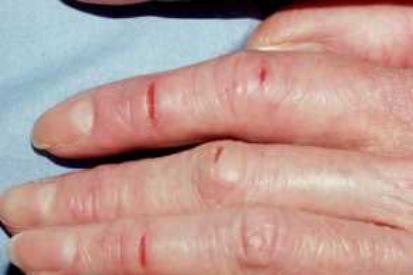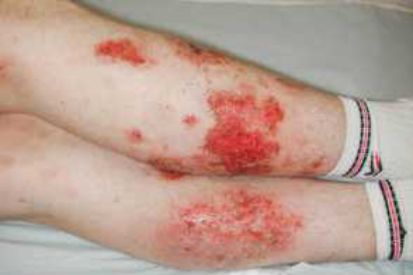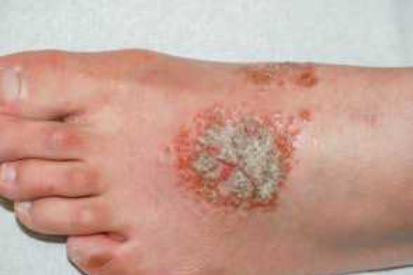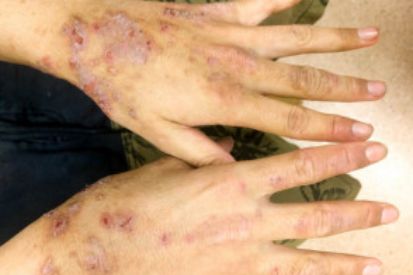Eczema
Eczema, or dermatitis, is a common skin condition that leads to redness, inflammation, and irritation. Affecting nearly 35 million Americans, eczema can cause significant discomfort and may lead to complications like infections, though it isn’t typically dangerous.
At Pinehurst Dermatology & Mohs Surgery Center, our skin specialists offer personalized care tailored to your unique symptoms and triggers. Managing eczema effectively requires working closely with a skincare provider to create a customized treatment plan that addresses your individual needs.
With the right dermatological care, you can improve your skin's health and manage eczema more confidently. Discover more about eczema below and let us help you find the best solutions to keep your skin comfortable and healthy.
Examples of Eczema





What are the symptoms of Eczema?
- Dry, sensitive skin.
- Intense itching.
- Red, inflamed skin.
- Recurring rash.
- Scaly areas.
- Rough, leathery patches.
- Oozing or crusting.
- Areas of swelling.
Causes of Eczema
- Specific gene variations can affect the skin's ability to provide an effective barrier against irritants and allergens.
- Exposure to certain irritants or allergens, such as harsh soaps, detergents, fragrances, and certain fabrics.
- Your immune system may overreact to certain substances, leading to inflammation and skin irritation.
How to Prevent Eczema
- Gentle skincare and cleansers.
- Avoiding hot baths and tight clothing.
- Seeking medical advice from a dermatologist.
Eczema FAQs
Eczema is caused by a combination of genetic and environmental factors. Common triggers include allergens, irritants (like soaps and detergents), stress, and changes in weather.
No, eczema is not contagious. You cannot catch it from or spread it to others.
Eczema can affect people of all ages, but it often begins in childhood. Individuals with a family history of eczema, asthma, or allergies are at higher risk.
There is no cure for eczema, but it can be managed effectively with the right treatment and lifestyle adjustments. Many people find relief through moisturizers, medications, and avoiding triggers.
Treatments for eczema include topical creams, oral medications, phototherapy, and lifestyle changes like using gentle skincare products and avoiding known triggers.
If over-the-counter treatments aren’t effective, if your symptoms are severe, or if you develop signs of infection (like pus, swelling, or increased redness), it’s important to see a dermatologist for specialized care.
From our QualDerm Family of Brands: Eczema Symptoms
How to Treat Eczema
Dermatologists offer specialized care to manage eczema symptoms and improve the quality of life for individuals with this chronic skin condition. Treatments commonly include:
- Prescription Medications: Dermatologists may prescribe topical corticosteroids or non-steroidal anti-inflammatory creams to alleviate inflammation and itching.
- Topical Medications: These medications help modulate the immune response, reducing inflammation in the affected skin areas.
- Systemic Medications: In severe cases, oral or injectable medications may be recommended to address widespread or persistent symptoms.
Your dermatologist can offer invaluable education on skincare practices, lifestyle modifications, and preventive measures, empowering you manage their eczema more effectively. Regain your confidence and build on your healthy skin journey by scheduling an appointment with one of our providers.
Featured Products
Check your local office for current stock!
Check your local office for current stock!
